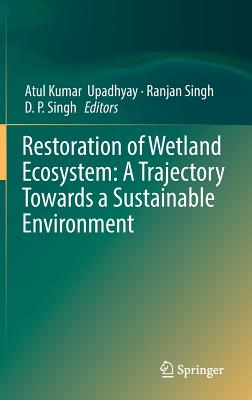Soil Bacteria: Biofertilization and Soil Health
暫譯: 土壤細菌:生物肥料與土壤健康
Dheeman, Shrivardhan, Islam, M. Tofazzal, Egamberdieva, Dilfuza
相關主題
商品描述
This comprehensive exploration delves into the pivotal role of bacteria in soil health, elucidating their mechanisms in organic matter decomposition, metal facilitation, bioremediation of stubborn materials, and nutrient cycling essential for soil fertilization, plant health and conditioning.
In an agricultural ecosystem, soil nutrients are the backbone, sourced either externally through fertilizers or internally by the action of soil bacteria. Understanding the intricate concert of soil bacteria within the ecological framework offers three significant advantages: revitalizing soil health and quality (soil reclamation), enhancing soil nutrient availability (biofertilization), and amplifying crop yields in an environmentally sustainable manner (sustainable agriculture).
This book caters to a diverse audience including educators, researchers, technocrats, policymakers, agricultural foundations, non-governmental organizations, and particularly research students. It also serves as supplementary material for undergraduate and graduate students across various disciplines such as agriculture, microbiology, biotechnology, forestry, ecology, soil science, and environmental sciences. Additionally, it provides invaluable insights for both national and international agricultural scientists and soil ecologists, enriching their understanding of soil ecosystems and agricultural sustainability.
商品描述(中文翻譯)
這本全面的探索深入探討了細菌在土壤健康中的關鍵角色,闡明了它們在有機物分解、金屬促進、頑固材料的生物修復以及對土壤施肥、植物健康和調理至關重要的養分循環中的機制。
在農業生態系統中,土壤養分是基礎,這些養分要麼通過肥料從外部獲得,要麼通過土壤細菌的作用從內部獲得。理解土壤細菌在生態框架中的複雜協作提供了三個重要的優勢:恢復土壤健康和質量(土壤復墾)、提高土壤養分的可用性(生物施肥),以及以環境可持續的方式提高作物產量(可持續農業)。
本書適合多元的讀者群,包括教育工作者、研究人員、技術專家、政策制定者、農業基金會、非政府組織,特別是研究生。它也作為本科生和研究生在農業、微生物學、生物技術、林學、生態學、土壤科學和環境科學等各個學科的補充材料。此外,它為國內外的農業科學家和土壤生態學家提供了寶貴的見解,豐富了他們對土壤生態系統和農業可持續性的理解。
作者簡介
Shrivardhan Dheeman
Dr. Shrivardhan Dheeman is an associate professor, and Head of the Department of Biotechnology and Microbiology at MVN University, New Delhi, India. Dr. Dheeman is an enthusiastic researcher and a teacher of microbiology and biotechnology, with a PhD in microbiology specializing in plant-microbe interactions and microbial ecology from Gurukula Kangri University, Haridwar, India. He has more than 45 publications in prestigious journals, edited 4 books with Springer Nature, and submitted more than 25 bacterial sequences to NCBI, USA. He is an active life member of several scientific bodies such as Indian Science Congress Association and Asian PGPR Society for Sustainable Agriculture.
Tofazzal Islam
Professor Tofazzal Islam is a distinguished figure in the field of biotechnology and genetic engineering, serving as the Founding Director of the Institute of Biotechnology and Genetic Engineering (IBGE) at Bangabandhu Sheikh Mujibur Rahman Agricultural University in Bangladesh. Renowned internationally for his expertise in molecular host-microbe interactions and agrobiotechnology, he holds a PhD in applied biosciences from Hokkaido University. With a wealth of experience, Professor Islam has conducted postdoctoral research at prestigious institutions, supported by esteemed fellowships including JSPS, Alexander von Humboldt, Commonwealth, and Fulbright. Notably, he led an international team that swiftly identified the origin of the 2016 wheat blast epidemic in Bangladesh, showcasing his leadership and problem-solving abilities. Currently, Professor Islam leads a large international team dedicated to addressing wheat blast disease through cutting-edge approaches such as genomics, genome editing, nanobiotechnology, and advanced molecular techniques. Their collaborative efforts have resulted in the development of a rapid point-of-care diagnostic method, demonstrating their commitment to practical solutions in agricultural research. Professor Islam's contributions extend beyond the laboratory, with over 350 articles and 20 books published and approximately 10,000 citations, reflecting his significant impact on the field (h-index 52). His research endeavors have attracted over $10 million in global funding, underscoring his dedication to advancing agricultural research on a global scale.
Md. Nurealam Siddiqui
Dr. Md. Nurealam Siddiqui is serving as an associate professor and Head of the Department of Biochemistry and Molecular Biology, Bangabandhu Sheikh Mujibur Rahman Agricultural University (BSMRAU) in Bangladesh with 12 years of teaching and research experiences in the field of plant biochemistry, plant molecular biology, abiotic stress physiology, quantitative genetics, plant molecular nutrition and crop functional genomics. Dr. Siddiqui has completed bachelors in agriculture in 2010 and masters in biochemistry and molecular biology in 2012 from Hajee Mohammad Danesh Science and Technology University, Dinajpur, Bangladesh. In 2022, he earned PhD in crop molecular genetics from the University of Bonn, Germany as a recipient of DAAD fellowship. Dr. Siddiqui achieved several national and international awards due to his excellent research progress as an early career scientist. He has published >50 research articles in peer-reviewed high-impact journals.
Dilfuza Egamberdieva
Dr. Dilfuza Egamberdieva is the head of the Biological Research and Food Safety Lab, Institute of Fundamental and Applied Research, National Research University (TIAME). She received her PhD in agricultural sciences from the Humboldt University of Berlin, Germany. She pioneered research on the soil and plant microbiome. Her remarkable contributions to science in the field of microbiology received the UNESCO-Carlos J. Finlay Prize for Microbiology (2023), SCOPUS-2019 Regional Award. "Top Scientist of the Year", TWAS (The World Academy of Science) Award in Agricultural Sciences (2013). TWAS-TWOWS-SCOPUS Young Women Research Award (2009), L'OREAL-UNESCO Fellowship for Women in Science (2006), American Society of Microbiology, (ASM) Morrison Rogosa Award (2006), UNESCO-Man and Biosphere (MAB) Award (2005). She is a member of the Global Young Academy (GYA), the World Academy of Sciences (TWAS) and Islamic World Academy of Sciences (IAS). She authored/co-authored over 200 research articles and edited 6 books through international publishers.
作者簡介(中文翻譯)
施瑞瓦丹·迪曼
施瑞瓦丹·迪曼博士是印度新德里MVN大學生物技術與微生物學系的副教授及系主任。迪曼博士是一位熱情的研究者及微生物學與生物技術的教師,擁有哈里德瓦爾的古魯庫拉·康格里大學微生物學博士學位,專攻植物-微生物互動及微生物生態學。他在多個知名期刊上發表了超過45篇論文,編輯了4本與Springer Nature合作的書籍,並向美國國家生物技術資訊中心(NCBI)提交了超過25個細菌序列。他是多個科學機構的活躍終身會員,如印度科學大會和亞洲可持續農業PGPR學會。
托法扎爾·伊斯蘭
托法扎爾·伊斯蘭教授是生物技術和基因工程領域的傑出人物,擔任孟加拉國邦甘德·謝赫·穆吉布·拉赫曼農業大學生物技術與基因工程研究所(IBGE)的創始所長。他因在分子宿主-微生物互動和農業生物技術方面的專業知識而享譽國際,擁有北海道大學應用生物科學的博士學位。伊斯蘭教授擁有豐富的經驗,曾在多個知名機構進行博士後研究,並獲得包括JSPS、亞歷山大·馮·洪堡、英聯邦和富布賴特等著名獎學金的支持。值得注意的是,他領導了一個國際團隊,迅速確定了2016年孟加拉國小麥爆發疫情的起源,展現了他的領導能力和解決問題的能力。目前,伊斯蘭教授領導一個大型國際團隊,致力於通過基因組學、基因組編輯、納米生物技術和先進的分子技術等尖端方法來應對小麥爆發病。他們的合作努力已經開發出一種快速的現場診斷方法,顯示出他們對農業研究實用解決方案的承諾。伊斯蘭教授的貢獻超越了實驗室,發表了超過350篇文章和20本書籍,引用次數約為10,000次,反映了他對該領域的重大影響(h-index 52)。他的研究工作吸引了超過1000萬美元的全球資金,突顯了他在全球範圍內推進農業研究的奉獻精神。
穆罕默德·努雷阿拉姆·西迪基
穆罕默德·努雷阿拉姆·西迪基博士目前擔任孟加拉國邦甘德·謝赫·穆吉布·拉赫曼農業大學(BSMRAU)生物化學與分子生物學系的副教授及系主任,擁有12年的植物生物化學、植物分子生物學、非生物胁迫生理學、量化遺傳學、植物分子營養和作物功能基因組學的教學和研究經驗。西迪基博士於2010年獲得農業學士學位,並於2012年獲得孟加拉國哈吉·穆罕默德·達內什科學與技術大學的生物化學與分子生物學碩士學位。2022年,他作為DAAD獎學金的獲得者,獲得德國波恩大學的作物分子遺傳學博士學位。由於其作為早期職業科學家的卓越研究進展,西迪基博士獲得了多項國內外獎項。他在同行評審的高影響力期刊上發表了超過50篇研究文章。
迪爾富扎·艾甘貝爾迪耶娃
迪爾富扎·艾甘貝爾迪耶娃博士是國立研究大學(TIAME)基礎與應用研究所生物研究與食品安全實驗室的負責人。她在德國柏林洪堡大學獲得農業科學博士學位。她在土壤和植物微生物組的研究方面開創了先河。她在微生物學領域的卓越貢獻獲得了聯合國教科文組織-卡洛斯·J·芬萊微生物學獎(2023年)、SCOPUS-2019區域獎、「年度最佳科學家」TWAS(世界科學院)農業科學獎(2013年)、TWAS-TWOWS-SCOPUS青年女性研究獎(2009年)、L'OREAL-UNESCO女性科學獎學金(2006年)、美國微生物學會(ASM)莫里森·羅戈薩獎(2006年)、聯合國教科文組織-人與生物圈(MAB)獎(2005年)。她是全球青年學院(GYA)、世界科學院(TWAS)和伊斯蘭世界科學院(IAS)的成員。她撰寫或共同撰寫了超過200篇研究文章,並通過國際出版商編輯了6本書籍。
















